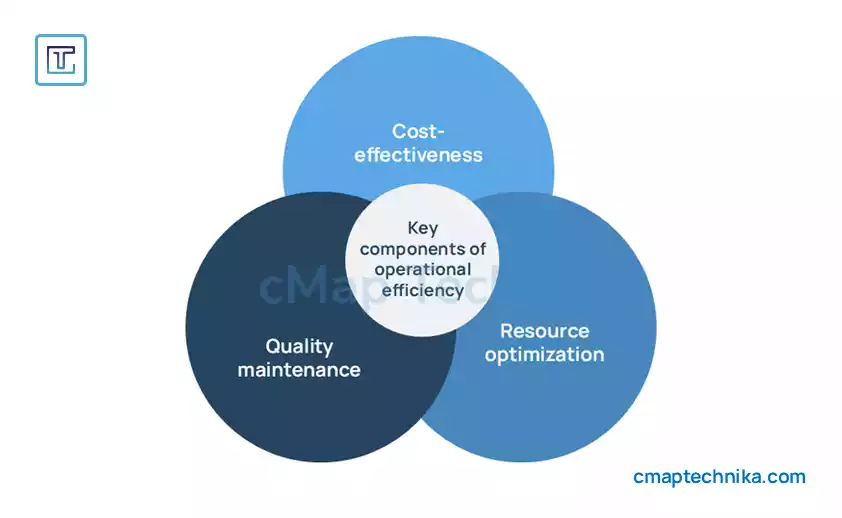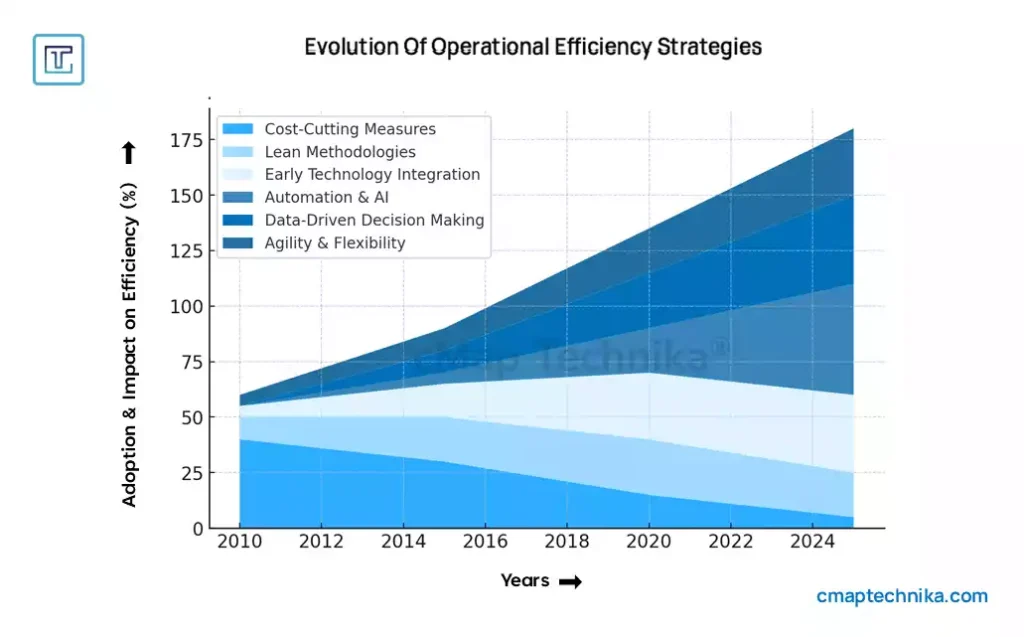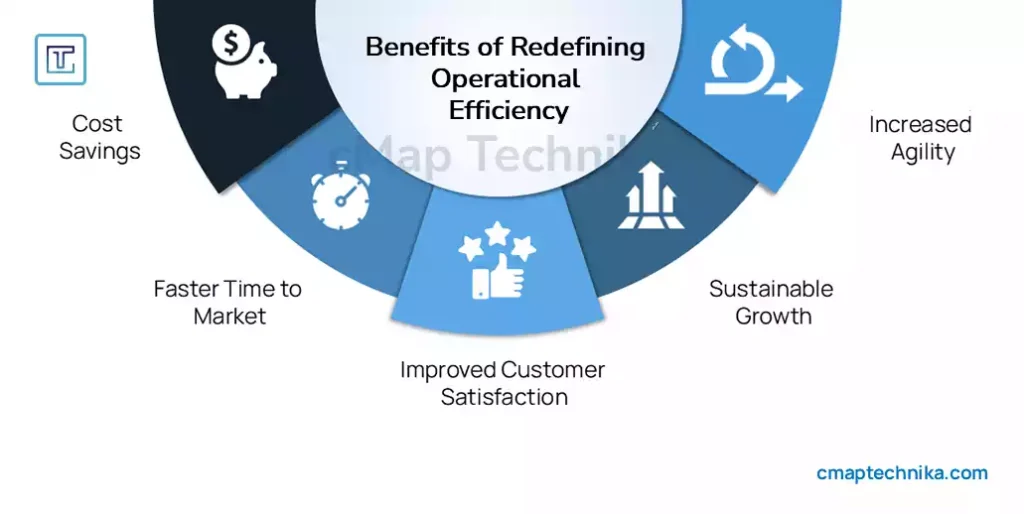In today’s fast-paced business world, operational efficiency isn’t just a nice-to-have—it’s a crucial driver of success. Organizations across industries are increasingly realizing that optimizing their operational processes can have a profound impact on their ability to grow, innovate, and stay competitive. The era of excellence in operations is here, and it’s time for businesses to rethink how they approach efficiency in order to unlock new levels of potential.
What is Operational Efficiency?

At its core, operational efficiency refers to the ability of an organization to deliver its products or services in the most cost-effective way possible while maintaining quality. It’s about maximizing the output from every resource—whether it’s time, labor, or capital—without sacrificing performance. In today’s competitive landscape, operational efficiency is no longer just about cutting costs; it’s about streamlining workflows, leveraging technology, and improving decision-making processes to create a more agile and resilient business model.
The Changing Landscape of Operations

The concept of operational efficiency has evolved over time. Traditionally, businesses focused on reducing costs by cutting overheads, reducing workforce numbers, or eliminating non-essential activities. While these strategies can yield short-term benefits, they often fail to drive long-term sustainable growth.
Now, the approach has shifted. The focus is on continuous improvement, technological innovation, and adaptability. Businesses are leveraging data-driven insights, automation, and integrated systems to redefine how work gets done. Operational efficiency is no longer just a function of reducing costs—it’s about making smarter decisions, improving collaboration, and enhancing the overall customer experience.
Key Strategies to Redefine Operational Efficiency
- Process Optimization Through Automation
One of the most powerful ways to improve operational efficiency is through automation. By automating repetitive tasks, organizations can free up valuable time for employees to focus on higher-value activities that drive innovation and growth. From automating data entry to deploying AI-powered systems that streamline decision-making, technology has the potential to significantly reduce human error and accelerate business operations.
- Data-Driven Decision Making
In today’s digital age, data is king. Organizations that leverage real-time data to make informed decisions can uncover inefficiencies in their operations and uncover opportunities for improvement. Implementing data analytics platforms allows businesses to track performance metrics, identify bottlenecks, and predict potential roadblocks before they occur. By embracing a data-driven culture, businesses can make more informed choices, optimize resource allocation, and stay ahead of the competition.
- Cross-Department Collaboration
Operational efficiency isn’t confined to individual departments; it’s about how the various functions within an organization work together toward shared goals. Encouraging cross-functional collaboration helps to eliminate silos, reduce redundancy, and improve communication across teams. By fostering a culture of collaboration and transparency, businesses can break down barriers, align efforts, and streamline workflows for greater efficiency.
- Agility and Flexibility
In a rapidly changing business environment, organizations need to be agile and adaptable. The ability to quickly pivot and respond to new market demands, customer expectations, or external factors is a key factor in driving operational efficiency. Adopting agile methodologies and flexible work structures enables businesses to adjust their operations in real-time, ensuring that they can meet the needs of the market while minimizing waste.
- Investing in Employee Training and Development
Your employees are your greatest asset. Investing in continuous training and development helps employees stay ahead of the curve and equips them with the skills necessary to embrace new technologies and processes. A well-trained workforce is more efficient, effective, and motivated to contribute to the company’s success.
- Customer-Centric Processes
A customer-first mindset can drive operational improvements that directly impact efficiency. When businesses design processes with the end-user in mind, they create smoother, more efficient workflows that ultimately lead to improved customer satisfaction. Whether it’s streamlining the customer service experience or improving product delivery times, optimizing operations around customer needs can help reduce costs and increase revenue.
The Benefits of Redefining Operational Efficiency

- Cost Savings
By identifying and eliminating inefficiencies, businesses can significantly reduce operational costs. This can free up resources for reinvestment in growth and innovation. - Faster Time to Market
With streamlined operations, businesses can bring products and services to market faster, giving them a competitive edge in an increasingly crowded space. - Improved Customer Satisfaction
Efficient operations lead to faster response times, more reliable service, and a better overall customer experience. - Sustainable Growth
Efficiency gains enable businesses to scale operations without proportionally increasing costs, leading to long-term growth and profitability. - Increased Agility
The ability to quickly adjust to market changes is critical for survival in a dynamic business landscape. Operational efficiency fosters flexibility, allowing businesses to pivot when necessary.
The Future of Operational Excellence
As organizations continue to embrace digital transformation, the future of operational efficiency lies in leveraging emerging technologies like artificial intelligence, machine learning, and the Internet of Things (IoT) to automate and optimize processes. Businesses that adopt these technologies early on will be better positioned to stay ahead of the curve, providing them with a sustainable competitive advantage.
The new era of operational excellence is characterized by adaptability, innovation, and continuous improvement. By redefining how operations are managed, businesses can unlock new levels of efficiency that drive not only cost savings but also growth, sustainability, and market leadership.
Conclusion
Redefining operational efficiency is more than just a trend—it’s a mindset shift that can lead to remarkable improvements across every aspect of a business. From leveraging automation and data to fostering collaboration and agility, organizations have the tools to optimize their operations for long-term success. Embrace these changes now, and you’ll be ready to thrive in the next era of business excellence.
By adopting a strategic approach to operations and continuously striving for improvement, businesses can position themselves as leaders in their industries, creating a solid foundation for sustainable growth and innovation. The future is bright for those ready to redefine what operational excellence truly means.







